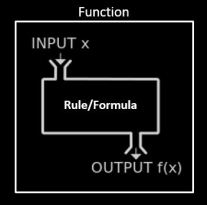

We are in a time of dramatic, some would say, revolutionary change in education, “challenging” as Sir Ken Robinson says, “what we take for granted.” His How Schools Kill Creativity, the most watched Ted Talk of all time, shows we hunger for learning as a creative experience. Yet we continue to treat learning math as a mechanical process focused on fluency in paper-based algorithms that demands monotonous practice. This curriculum with its ladder of “basic” skills from place value through solving quadratic equations was defined by Leonardo of Pisa in the year 1202 for traders, merchants, and lenders. It is obsolete! Machines run our algorithms and solve our equations.
 The math of business today is spreadsheet math based on functions and functional thinking building models, collecting and organizing data, to ask, “What if…” Today, spreadsheets have become the ubiquitous transformative tool, the mathematics technology tool used in science, technology, engineering, mathematics, and even the arts both at work and at home. What if Math brings spreadsheets, functions, and functional thinking to math education enabling students to learn math as a creative experience. Students work on Labs, not problems or exercises, using spreadsheets as laboratories to see patterns, build models, collect data, visualize, and ask What if…. What if Math has more than 100 Labs as models for a reinvention of the math curriculum. And we are adding new ones all the time. Labs range from foundational concepts like place value through algebraic functions. Labs include case studies for practicing problem solving on topics from sports to financial reasoning emphasizing out-of-the-box thinking and intuitive reasoning. Labs are experiments that students at all levels can use to learn math, to gain spreadsheet skills, to gain programming skills, and to develop out-of-the-box problem solving 21st century thinking. We seek to make learning a creative experience.
The math of business today is spreadsheet math based on functions and functional thinking building models, collecting and organizing data, to ask, “What if…” Today, spreadsheets have become the ubiquitous transformative tool, the mathematics technology tool used in science, technology, engineering, mathematics, and even the arts both at work and at home. What if Math brings spreadsheets, functions, and functional thinking to math education enabling students to learn math as a creative experience. Students work on Labs, not problems or exercises, using spreadsheets as laboratories to see patterns, build models, collect data, visualize, and ask What if…. What if Math has more than 100 Labs as models for a reinvention of the math curriculum. And we are adding new ones all the time. Labs range from foundational concepts like place value through algebraic functions. Labs include case studies for practicing problem solving on topics from sports to financial reasoning emphasizing out-of-the-box thinking and intuitive reasoning. Labs are experiments that students at all levels can use to learn math, to gain spreadsheet skills, to gain programming skills, and to develop out-of-the-box problem solving 21st century thinking. We seek to make learning a creative experience.
